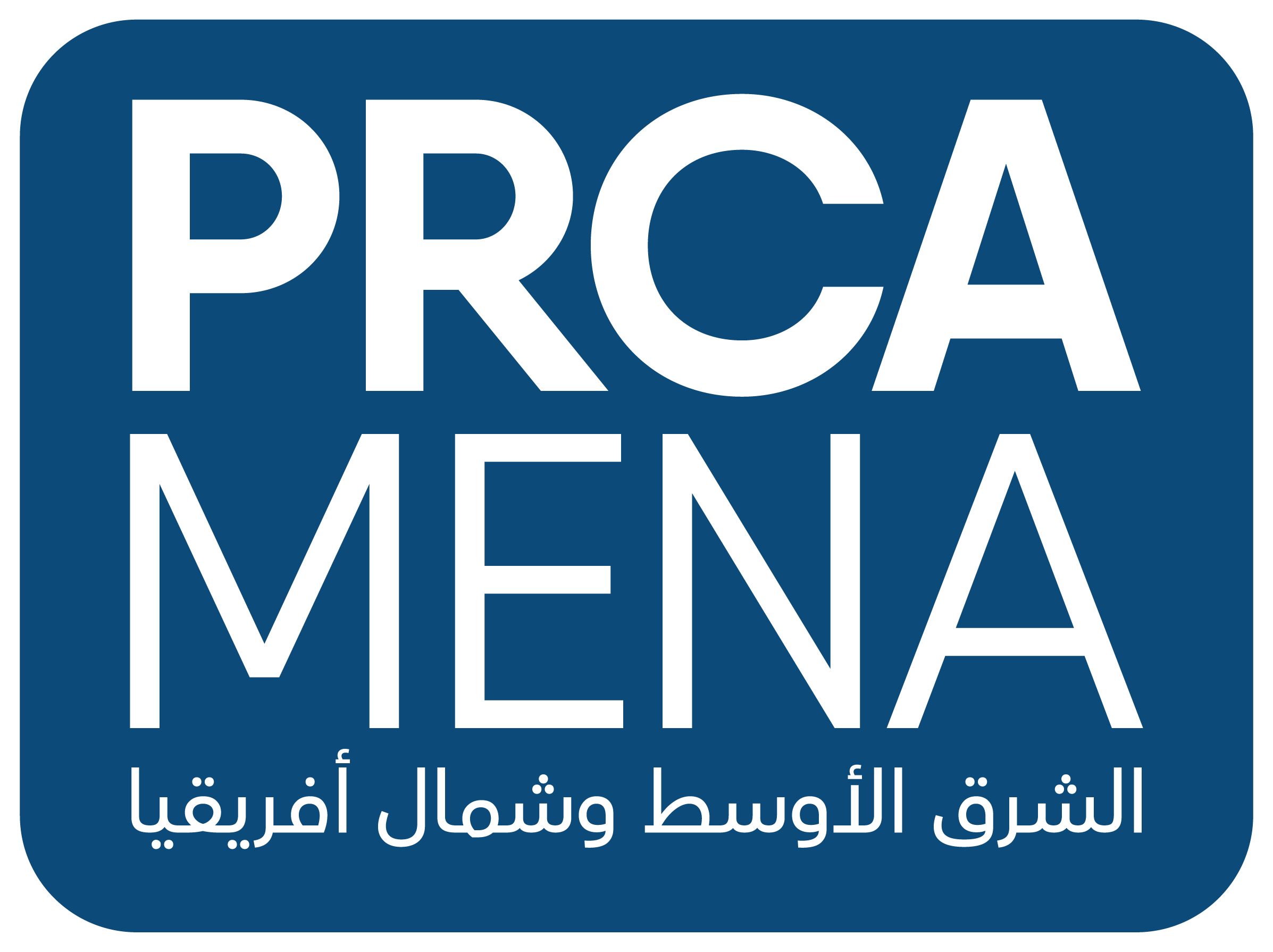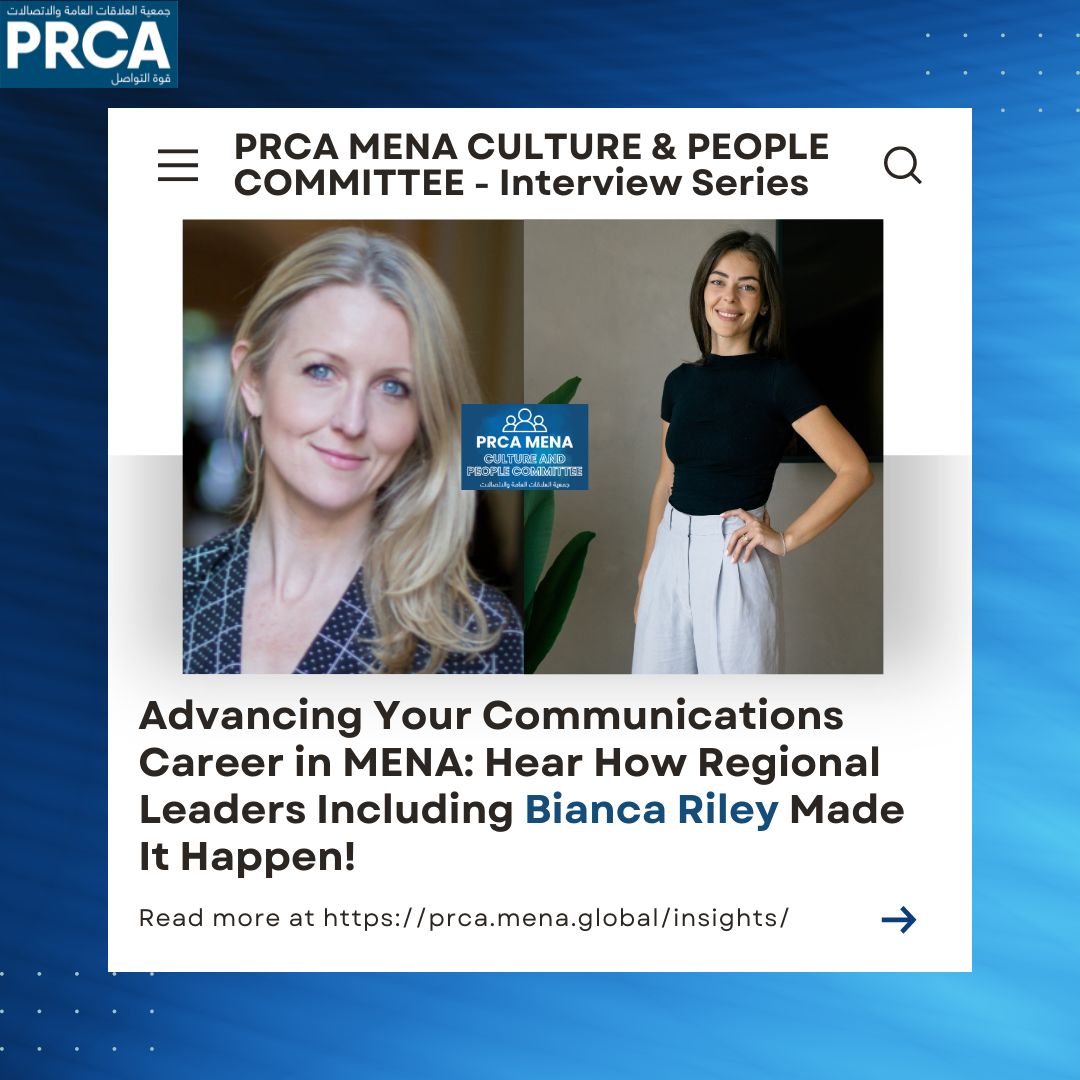Advancing Your Communications Career in MENA: Hear How Regional Leaders Including Bianca Riley Made It Happen!
Alice Weightman, Chair of the PRCA MENA People and Culture committee sat down with senior leaders of the communications industry and the committee members of PRCA MENA to share insights from their impressive careers, offering guidance on how to get ahead in the ever-changing communications field.
Today, we’ll hear from Bianca Riley, Director of Operations at Atteline, who will share their journey to success and offer some invaluable career advice.
What drove you to forge a career in communications?
I followed in my father’s footsteps. He was always such an incredible communicator and an inspiration not only in PR but also in how he leads a team and works with colleagues. Once I found my footing in my own role in communications, I realised my passions and strengths, as well as areas I wanted to learn and improve upon. The rest is history!
What do you think are the key qualities needed to succeed in communications and how do you assess these attributes when interviewing prospective candidates?
Clear, concise communication skills, with the ability to be both gentle and firm. When assessing these attributes in an interview, you can usually gauge the candidate’s ability to be straight to the point through the questions you ask and the answers you’re after. Are they able to give you a clear and detailed, but not long-winded answer? If so, they probably already have a great foundation. Another key quality we look for is attention to detail, which we usually can measure through written tasks or some form of minor work submission post-interview to ensure things like spelling, grammar, punctuation and other general best practices are being upheld.
What is the biggest challenge you’ve overcome during your career? What lessons did you learn from this experience that you believe are valuable for others facing similar obstacles?
I wouldn’t cite this as my biggest challenges faced but rather something I’ve learned along the way and have not faltered from is when I learned (the hard way) how important the people you work with are to your and your teams’ success. Culture is something people talk a lot about, but until you’ve worked with people you don’t align with, or who don’t have your and your teams’ best interests at heart, you may go through a rougher time at work than necessary, which is hard to see until you’ve experienced a truly supportive work environment.
How has mentorship and professional networking impacted your personal growth, and what guidance would you offer to junior professionals around this?
I have an amazing mentor that I met through PRCA MENA’s Taa Marbouta programme, whom I am still connected with and learn from every month. I also find amazing mentorship in my peers and the leadership team at Atteline. I do believe, however, potentially quite controversially so, that mentorship is not a necessary step to take on your personal growth journey in an “official” capacity. Let me explain. I don’t think you need to actively seek out and request a mentor. I think this should, and usually does, happen quite naturally. Learn from those around you, form natural bonds and have an appetite for growth. This will lead to mentorship in a much more organic and productive way. Professional networking, on the other hand, I think is a necessity in the communications industry. The most human element of our jobs is based on our personal relationships, so you must always be sure to foster and nurture these.
How do you prioritise self-care and wellbeing amidst demanding work schedules, and what advice would you offer to junior professionals on achieving balance in their lives?
My workplace at Atteline enables me to do this through our shorter working hours, flexible working model, and general trust-based honour system we have on all levels of the organisation. There absolutely was a time, however, in my career where this was not the case. Another potentially controversial answer here, but I actually really believe I needed to experience that to have the work ethic and diligence I have now. I am a huge advocate of working smarter, not harder, but you can’t work smarter until you’ve worked WAY TOO HARD on something and learned through the experience.
What advice do you have for junior professionals on embracing change in the evolving PR landscape?
Read, read, read. Know what’s happening and anticipate what’s likely to come, and plan accordingly.
Lastly, what career advice would you give to PR professionals about setting long-term career goals in the MENA region?
As someone who moved here with the intention of staying a few years, and has now been here over a decade with no intention of leaving any time soon, I’m not sure I am the best person to advise on this. I kept setting short-term goals, with an extremely vague long-term goal that has now been thrown in the trash. I guess on that note, my advice would be to always be open to changing circumstances – ride the wave and enjoy the surf! You can always decide to paddle out and get back on the board to try again.




